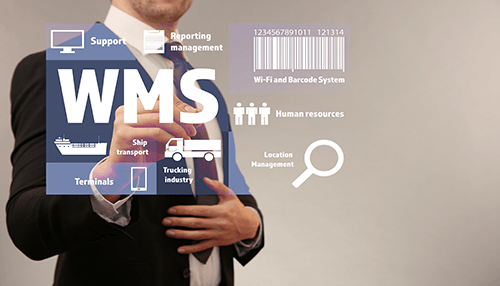Today, many manufacturing companies rely on innovative best practices to expedite and improve their daily operations. After all, time savings equal cost savings. One high technology that’s been trending in the industry and is likely here to stay is the use of a warehouse management system. This software allows manufacturing plants to organize and optimize their tasks from inventory to logistics and order fulfillment.
These necessary processes become integrated with this software, resulting in a more efficient workflow for everyone. With the ever-changing demands of consumers, businesses need to adapt and meet all their needs. A warehouse management system allows them to respond quickly, monitor all tasks, and let everyone engage in a better experience.
Here are more ways that a warehouse management system can add value to your fulfillment operations:
1. Efficient Inventory Tracking
The purpose of inventory tracking is to make sure you keep track of which stock items you have in your warehouse and where they are located. This ensures to serve your customers better to meet their needs and demands. Along with this function, you can monitor the inventory from the production plant down to the shipped address.
If a customer orders an item right now, inventory management allows you to see how much is ready to ship and when to order more based on projected demand. The management software manages serial-number tracking, expiration dates, and other vital information. Due to this transparency, your company can better spot any rising issues and resolve them as quickly as possible.
By using a WMS, businesses can track every item in transit precisely. You can repurchase items based on forecast and accurate estimations by tracking and monitoring inventory and stocks. The company won’t have to deal with high stocks nearing their expiration dates. Reducing storage time is an effective way to optimize your inventory. Growing your business means turning over inventory more quickly, opening new locations, and increasing your product lines. And this is when warehouse management software can significantly help with your order fulfillment.
2. Faster Fulfillment Process
The manufacturing industry often requires rapid adaptation to stay competitive. Your supply chain system can be set up quickly with a cloud-based warehouse management system. Thanks to this software, it can be shortened instead of a longer period to organize your logistics system.
The software gives you the chance to integrate different channels for fulfillment and consolidate every function of the entire order. Compared to an on-premises system, it offers the same level of warehouse management functionality.
3. Labor Management
Effective labor management must be a part of any worthwhile WMS. Labor management accounts for quite a few costs in a standard warehouse operation. Larger warehouses are expected to engage a higher volume of labor, incurring more costs for the company. When the warehouse is too large to manage everyone manually, some people aren’t working as productively and effectively as needed.
There are many ways to manage employees more effectively. A company can access real-time data on warehouse employees with the right labor management tools. Monitoring the performance of your workforce using supply chain visibility can be pretty valuable. Managers can monitor which workers need help and support. When one task takes longer to finish, warehouse managers can assign another employee for support.
The entire workforce can be better managed this way. Data can help warehouse managers overhaul their workforce’s efficiency. Indeed, labor-management functionality can be used as a tool for increasing productivity. Your warehouse processes will become more efficient as your teams become more productive.
4. Real-Time Reporting
Any business needs to draw reports, but in warehousing, real-time reporting can make a huge difference. Through these reports, everyone can see how the operations go, and there can be practical evaluation and assessment with the processes. This allows your business to improve workflows as often as possible. You can view and monitor this information in various forms such as charts and graphs to get better insights and make more effective management decisions for your warehouse.
The best way to utilize such reports is to understand how they work and what action you need to take. All the reports included with the WMS must consist of inventory reports, inventory forecasting, employees training, and many other factors necessary for the operations. When relevant data are gathered, your business knows the strong and weak points.
5. Lesser Operational Costs
The total cost of ownership of a WMS cloud-based solution is lower, and the return on investment is almost immediate. It doesn’t require hardware, software, or even IT specialists to use and run the system. Imagine how much savings your business can have with this. With it, you’ll be able to connect all the processes in your logistics from beginning to end.
No maintenance or upgrade fees apply to a cloud-based WMS. There are no costs associated with the IT infrastructure, hardware, systems, or database administrators. You can save on your operational cost and use the budget for other necessary investments for your business.
Conclusion
In a nutshell, an effective warehouse management system allows you to optimize and improve your daily operations. Thanks to all the ways mentioned above, your business can take advantage of all functions by investing in reliable warehouse management software. This software gives you the tools to improve your warehouse’s efficiency, allowing you more time to plan and determine your supply chain’s logistics.
INFOGRAPHIC



